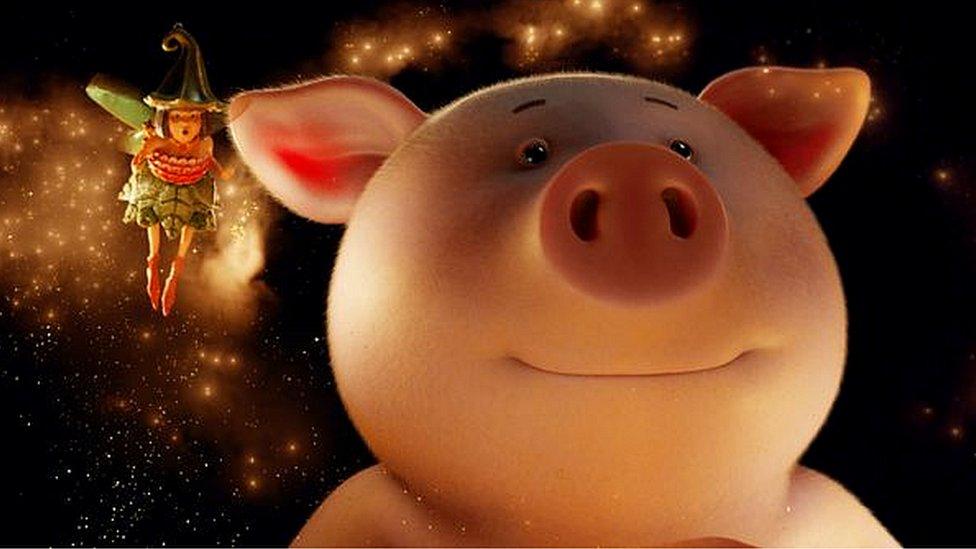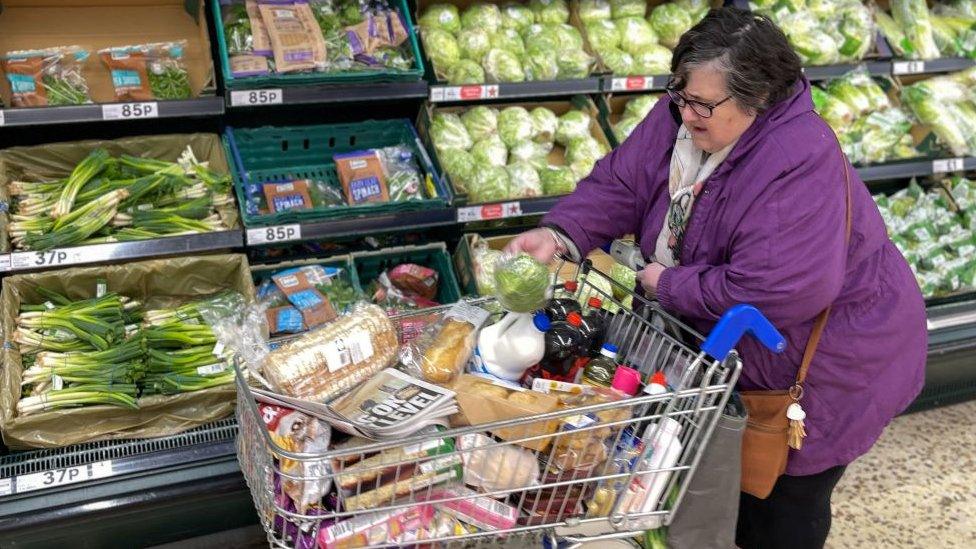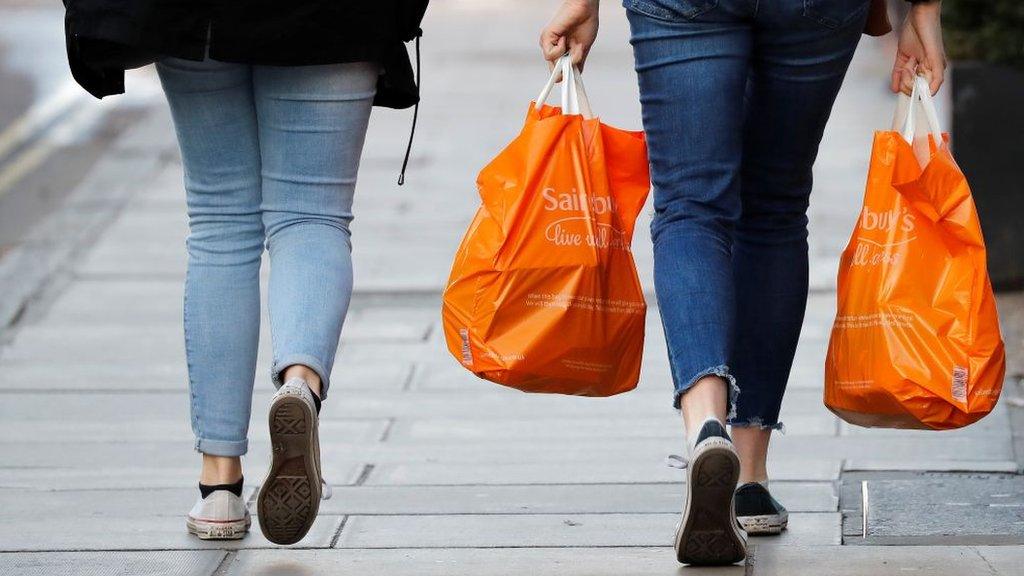Christmas sales soar for Marks & Spencer and Tesco
- Published

M&S's Percy Pig character fronted its Christmas campaign this year
Marks & Spencer and Tesco saw sales soar over Christmas as both retailers forecast strong full-year profits.
M&S said its food business reported its highest-ever revenue for Christmas, while Tesco said it was an "exceptional" festive period for sales.
Tesco now expects annual income to hit the top end of forecasts at £2.6bn.
Meanwhile, M&S said it was "now more confident" of reaching previous expectations of at least £500m in profits for the full-year.
Tesco's chief executive Ken Murphy said that "once again, Covid-19 led to a greater focus on celebrating at home". As a result, Tesco's Christmas sales in the UK rose by 0.3% compared to the previous year and were 9.2% higher than the pre-pandemic festive period in 2019.
Earlier this week, Sainsbury's also reported strong Christmas sales with more people choosing to eat at home rather than venture out amid the emergence of the Omicron variant.
M&S - whose Christmas campaign was fronted by its Percy Pig confectionary character - said sales within its food division rose to £1.9bn in the three months to 1 January - a 10% increase on 2020 and up 12.4% on pre-Covid levels.


Tesco and M&S have had a cracking Christmas. Other big retailers have also reported bumper sales. Despite all the supply chain problems, labour shortages and the arrival of the Omicron variant, the all-important festive trading was pretty decent for the industry overall.
Supermarkets were up against some tough comparisons after last year's record-breaking performance, when Covid restrictions caused a boom in food sales. But they've been buoyant this time round, too. People wanted to treat themselves and there was more eating and drinking at home. And after all the fears of empty shelves and shortages, there was plenty of food.
Consumers were in the mood to spend on non-food as well. They were also prepared to pay full price to make sure they got what they wanted, boosting retailers' profit margins. There may have been a little less choice but the demand, at least, was there.
Retailers are now wondering what will happen to consumer spending given the looming squeeze on living standards from rising bills and the increase in national insurance contributions. They're also having to deal with their own soaring costs and continuing supply chain issues. So having had much to celebrate this Christmas, there are lots of uncertainties ahead.

The retailer said that customers were already using M&S for more of their everyday shopping items and it said "the larger basket sizes we saw in the first half continued through the Christmas period".
M&S said total sales for the three month period rose by 18.6% to £2,9bn compared to the previous quarter. They were also 8.9% ahead of 2019.
Revenue from its clothing and home division also rose but this was driven by online sales. In-store clothing and home demand fell by 10.8% compared to pre-Covid levels which M&S said reflected a trend already evident before the pandemic that more people were shopping online.
It also said shops at retail parks continued to outperform stores in city centres.
M&S's chief executive Steve Rowe said: "The market continues to be impacted by the headwinds and tailwinds that we reported in the first half."
At the time, Mr Rowe said: "Well-publicised supply chain pressure, combined with pandemic supply interruptions, rising labour costs, EU border challenges and tax increases means the cost incline becomes steeper in the second half and steeper again in the 2022-23 year."
But on Thursday Mr Rowe said: "I remain encouraged that our transformation plan is now driving improved performance."

At Tesco, Mr Murphy said: "Despite growing cost pressures and supply chain challenges in the industry, we continued to invest to protect availability."
In terms of staff shortages and a dearth of lorry drivers which has affected all areas of the retail sector, Mr Murphy said there had been improvements since summer. While he said it would be wrong to say there are no issues, "we're managing".
Related topics
- Published12 January 2022

- Published6 January 2022
